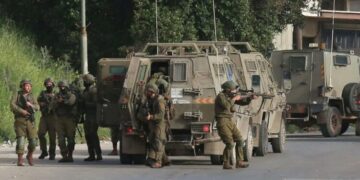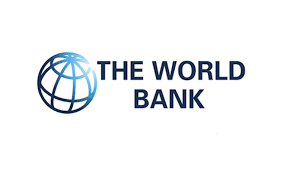Agencies-Gaza post
World Bank grants $37 million for Palestinian reforms, human capital
The World Bank agreed on Tuesday on a $30 million Development Policy Grant funding reforms in the dimensions of transparency, inclusion, and the green economy in the Palestinian territories. In addition, $7 million will be endowed to supply selected social benefits, short-term cash for services, and online employment options to the most helpless populations in Gaza.
“The World Bank’s financial support through a new development policy grant builds upon previous operations and supports a range of reforms to strengthen governance and transparency efforts,” said Kanthan Shankar, World Bank Country Director for West Bank and Gaza. “The grant will help ease some of the fiscal stress, while also focusing on strategic priorities in line with the World Bank Group’s Assistance Strategy for the West Bank and Gaza and the Palestinian National Development Plan for 2021-2023.”
The new process, “Supporting Transparency, Inclusiveness and the Green Economy” Development Policy Grant (DPG) concentrates on reforms to improve public procurement practice and increase transparency. This, in turn, will promote stronger controls over spending and eventually construct the fiscal space needed for effective investments and higher social spending. The DPG also supports the Palestinian Authority’s efforts to address the needs of vulnerable stations through reforms that improve financial inclusion and that roll out gender-responsive budgeting in key ministries.
In line with the World Bank Group’s Climate Change Action Plan (CCAP), the operation concentrates on strengthening the Palestinian territories’ adaptation and resilience to climate change shocks via reforms to improve governance in the water sector and modifications to the environment protection law to decrease greenhouse gas emissions.
“The World Bank is also focused on the shortage of jobs, particularly for youth in Gaza following years of political instability and violence. Even before the COVID19 pandemic and the escalation of the 2021 conflict, only 16% of educated young people in Gaza – and 4% of young women – entered the labor market. Given the limited psychosocial support and mental health services in Gaza, the $7 million grant will help create jobs in much-needed social services sectors, thus boosting human capital while helping young job seekers and their families lift themselves out of poverty,” reported Shankar.
The “Gaza Emergency Support for Social Services Project” answers to the primary needs occurring from the emergency in Gaza and builds on last operations to supply mental health services, short-term cash for social services, and online employment options. The project will be executed by the NGO Development Center (NDC) which will select non-governmental organizations (NGOs) in Gaza with excellent track records to manage and scale up mental health and psychosocial services. The NDC will also subcontract service providers to provide training and support required for youth to find employment possibilities as online freelancers.
Via the cash for services program, selected NGOs will target unemployed people with the capacity to improve the psychosocial support condition in Gaza to the most vulnerable residents, focusing on women and children. The e-work program will focus on licensing youth by targeting young people between the ages of 18-34 – half of whom are women – with a focus on those who have the skills or potential to become e-workers or online freelancers. A parallel intervention under the Gaza Emergency Cash for Work and Self-Employment Support has established this modality to be successful in delivering employment options for youth and especially women, with 80% of beneficiaries finding agreements totaling around $500,000.
Source: WAFA
















